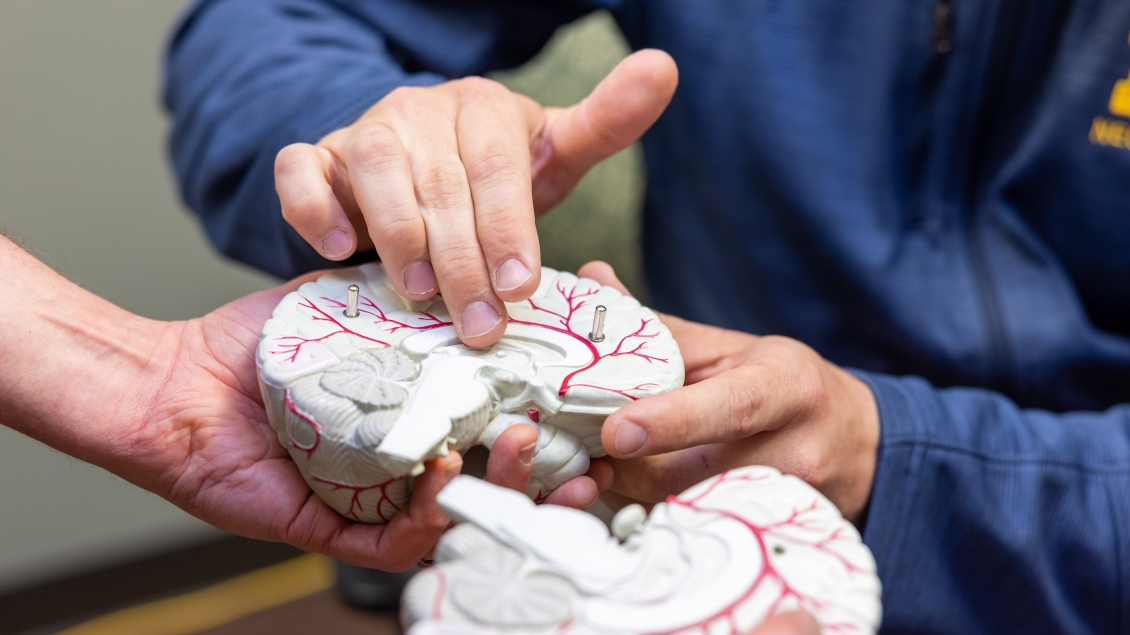-
Ataxia Program -
Cognitive Disorders Program -
Comprehensive Epilepsy Program -
Health Services Research Program -
Movement Disorders Program -
Multiple Sclerosis & Clinical Neuroimmunology Research Program -
NeCTO Program -
Neuromuscular Diseases & ALS Program -
Neuro-Oncology Program -
NeuroSport -
Sleep Medicine Program -
Stroke Program

Over the past 15 years, the discovery of genes that cause Parkinson’s disease and related neurodegenerative diseases has revolutionized our understanding of why these diseases happens. Now, these genes are like on-ramps to the road to better treatments.
Together with collaborators in the Departments of Human Genetics, Biological Chemistry, the U-M Life Sciences Institute and scientists in the Protein Folding Initiative, we are exploring how these genes transmit their lethal messages to neurons, unraveling the step-by-step details of how neurodegeneration happens.
This exciting work includes studies in human neurons created from patient stem cells, and those in breakthrough animal models of neurodegenerative disease.
A tremendous strength of the University of Michigan Medical School and a key to much of our patient-based research is the internationally recognized division of Nuclear Medicine that, together with our team, has developed novel imaging compounds that allow us to peer into the brains of patients with Parkinson's disease with unparalleled precision and resolution. A major focus of patient-based studies is to better understand and devise new treatment approaches for the symptoms of falls and cognitive decline in Parkinson’s disease, for which effective therapies do not currently exist.
Our movement disorders program, among the largest and most accomplished in the nation, is home to one of the few NIH-supported flagship Morris K. Udall Centers of Excellence for Parkinson’s Disease Research.